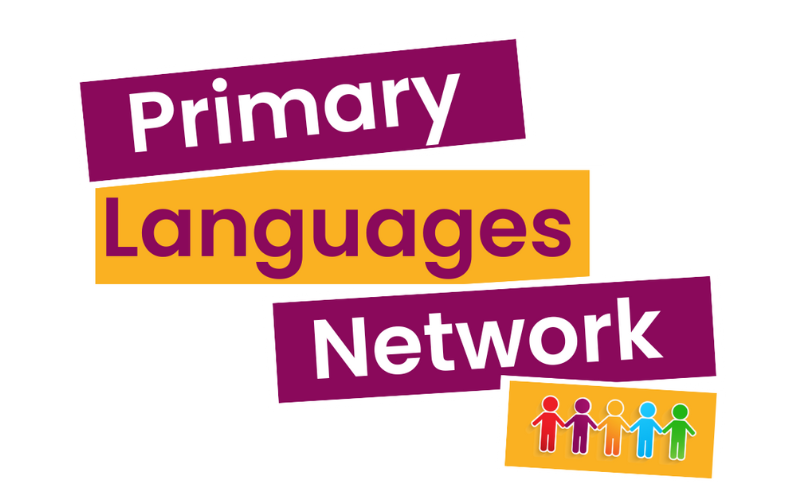Today I am working with a group of coordinators and some of their secondary colleagues at a High School in Southport.We are looking at the new DfE POS and shared learning tools and how to make progress across 7 years of language learning.
"Phonology" as it is referred to in the new DfE POS will be one of our focuses and how this fits in to a sequence of learning plays how we can build progression in to the children's developing understanding of phonics in the target language and the links between sound and spelling.
Phonics as a focus isn't new ! Obviously!It's a feature of all KS1 teaching and learning in the main language of the schools and in communication skills and learning to read and write.It has always been a part of the primary language learning that has taken place in this country and certainly as part of the KS2 Framework skills and learning objectives.Indeed above you can see an example of a French phonics fan from TTS.
A month ago we held our conference #JLN2014 and the wonderful Julie Prince spoke about phonics and teaching /learning activities in the target language based upon the book she wrote with Dr Lynne Erler "Sounds and Words" .
Inspired by Julie's ideas I have created the activity below called "sound pathway code" to take these ideas just that little bit further to see how we can make progress and share learning tools that can be revisited at KS3 particularly in Y7 .
Sound Pathway Code
I have selected colours,as it's part of a sequence of activities to practise the 4 skills and to create word rainbows for the classroom.
Once again very easy .They are pieces of white card with the key sound written as a grapheme or letter string in the target language on one side of the white cards.(We are working with French target language colours here by the way!)
"Phonology" as it is referred to in the new DfE POS will be one of our focuses and how this fits in to a sequence of learning plays how we can build progression in to the children's developing understanding of phonics in the target language and the links between sound and spelling.
Phonics as a focus isn't new ! Obviously!It's a feature of all KS1 teaching and learning in the main language of the schools and in communication skills and learning to read and write.It has always been a part of the primary language learning that has taken place in this country and certainly as part of the KS2 Framework skills and learning objectives.Indeed above you can see an example of a French phonics fan from TTS.
A month ago we held our conference #JLN2014 and the wonderful Julie Prince spoke about phonics and teaching /learning activities in the target language based upon the book she wrote with Dr Lynne Erler "Sounds and Words" .
Inspired by Julie's ideas I have created the activity below called "sound pathway code" to take these ideas just that little bit further to see how we can make progress and share learning tools that can be revisited at KS3 particularly in Y7 .
Sound Pathway Code
- Select your content
I have selected colours,as it's part of a sequence of activities to practise the 4 skills and to create word rainbows for the classroom.
- Now create sound pathway codes . Here's are some I made earlier!Basically you need to decide how many different words you wish to use per code,divide your strip in to the same number of sections and add the key symbol to represent the word. Here it was easy because I just filled in the boxes with the specific colour
- Now create you sound stepping stones.
Once again very easy .They are pieces of white card with the key sound written as a grapheme or letter string in the target language on one side of the white cards.(We are working with French target language colours here by the way!)
- As a hidden prompt add a small picture ( or in this case "dot" on the reverse of the card that represents the word the grapheme or letter string comes from).Do not tell or remind the class about this!
- Ask the class to work in groups of four and to a sound code card.Each child in the group needs a different sound code card.
- Ask the children to place their sound stepping stones on the table with the written letter string or grapheme face up.They must not turn over the cards and see the picture clues!
- Each child must take it in turns to look at the symbol prompts on his/her sound pathway code card, locate the correct grapheme or letter string,reorganise the stepping stones in to the order they require to create a spoken pathway from one end of their sound pathway code card strip to the other.
- They can check their sound code pathways after each child has achieved their sound code pathway by turning over the cards and seeing if they have selected the correct card for their symbols and in the correct order.For example the first sound stepping stone to match the yellow square on my sound pathway code card is ......
and when at the end of my sound code pathway I turn over the cards I can see that I selected "au" because it's in the target ;language word "jaune" and when I turn over the sound stepping stone card, I was correct as I can see a small yellow dot!
Let's add challenge
The activity above would be an activity for early learners and could also be revisited again and again later in the children's learning to reinforce sound letter links and phoneme grapheme transfer.
But now let's see if we can add challenge that encourages and offer me AfL to demonstrate progress.I played this game on Tuesday this week and it was really well received!
- Create and distribute the sound pathway codes and the sound stepping stones as above but omit two sound stepping stones per group. do not tell the children you have done this .Let them figure this out .
- In my game the players began to realise that two colours I had selected "rouge" and "blanc" didn't have a stepping stone that fitted the word! The players at first thought there was a mistake and then the penny began to drop! Each group had the same or similar problems!
- I could see who realised this immediately,who could tell me the problem of the missing stones and who could suggest ways to resolve the problem by suggesting letter strings or graphemes for two new blank sound stepping stones so that they could complete their sound code pathway walks.
Next step?
Well next step for me would be to ask the children to create their own sound pathway codes and sound stepping stones with a "twist" as above for another group to use.The process of creating the game would mean that they need to :
- think about the sound and spelling of the words
- identify key letter strings or graphemes
- write the key letter strings or graphemes on the stepping stones
- play a new game with familiar language prepared by other classmates and puzzle out the challenges of the new game!



















